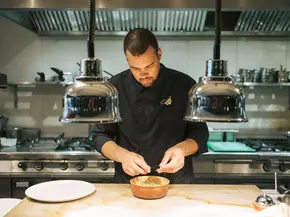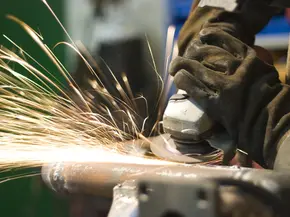Our Circular Economy Model
A business model based on circular economy
As a bespoke solutions company, sustainability is at the heart of our business model. We are committed to delivering a quality service while minimising our environmental impact. We always strive to create the conditions for a trusting and respectful environment with our employees and all of our stakeholders.
Our business model and our success has been based on the circular economy aspect.
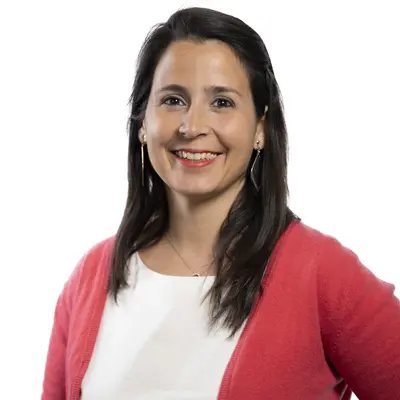
“At Elis, the circular economy is at the heart of our business model and is the foundation of our CSR strategy.
We firmly believe that circularity is one of the solutions to today’s environmental challenges!”
A Virtuous Model
We have participated in the circular economy for over 75 years by prioritising the use, rather than the sale, of products. Beyond this model, we rely on pooling, repair, reuse and recycling to extend the life of materials. We work with our partners to continually improve our practices in the firm belief that this model reduces resource consumption and addresses environmental challenges.
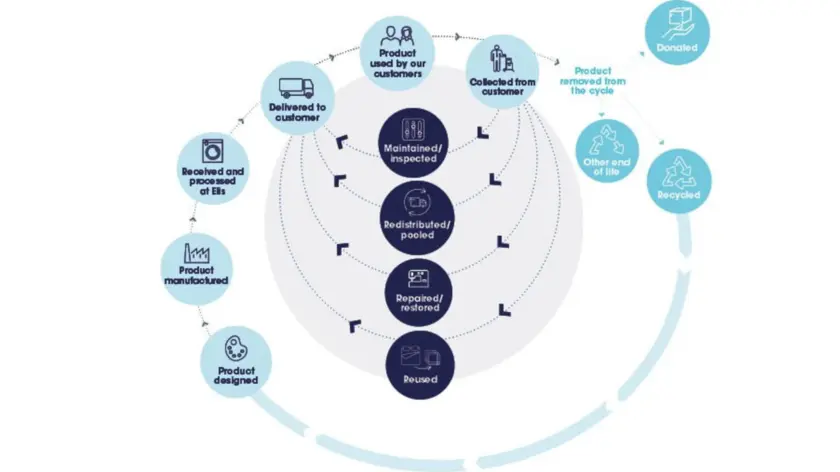
We are convinced that the circular economy is a sustainable solution to today’s environmental challenges and to our planet’s finite resources.
We carry out regular life cycle assessments (LCAs) to scientifically demonstrate these benefits:
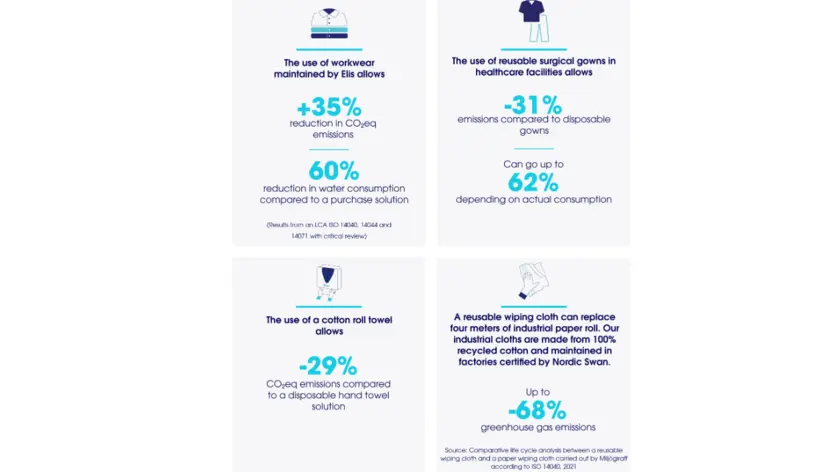
Eco-designing our Products
The way the products are designed and developed ensures that they are of very high quality and have a long lifespan, while also considering the materials used, their origin, production methods, and environmental impact.
Since Elis’ business model is based on product-as-a-service (rental & maintenance), it is in the Group’s interest to extend the life of its products by selecting high-quality items that meet expectations for use, comfort, and aesthetics, and by continually working to prolong their useful life. The Group aims to reduce the environmental impact of its products and services, particularly by developing lower-impact products through eco-design—such as using alternative or certified materials, implementing lower-impact manufacturing or design processes, designing products for repairability, recycling or refurbishing at end-of-life, and encouraging reuse and repair—or by performing life cycle assessments (LCAs) on certain products.
Elis’ quality lab also tests products’ resistance before release to ensure they meet customers’ performance and durability requirements, in accordance with applicable standards.
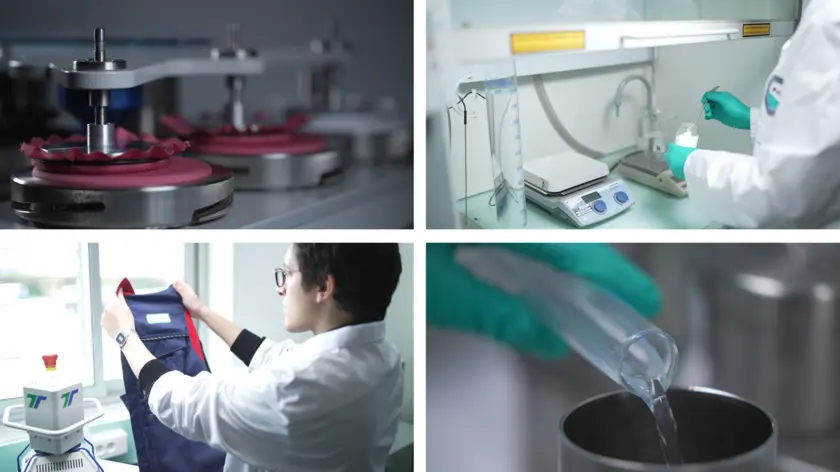
Repair, Reuse, Recycle
We constantly work to keep our products in use. To achieve this, we rely on several strategies: lifespan and quality, maintenance, reuse, repair, repurposing, and refurbishment and reassembly. Recycling and repurposing end-of-life products is a priority for the Group. It has set a target to recycle or repurpose 80% of its end-of-life textiles by 2025.
The Group is implementing a range of actions and initiatives to identify key actors in the sector, establish relevant value chains, and optimize processes.
Need information? Contact us!
*Required fields
Contact details
Your legal name is the name that appears on your official documents.



